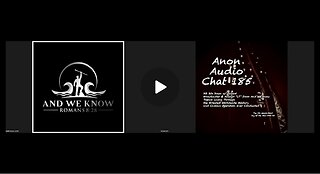Premium Only Content

Use of Was and Were English Grammar for bigners Urdu Hindi Class # 10
Use of Was and Were English Grammar for bigners Class # 10
The use of "was" and "were" in English grammar is closely tied to verb conjugation, specifically in the past tense. These two words are forms of the verb "to be" and play a crucial role in indicating the state, condition, or existence of something or someone in the past.
"Was": This is the past tense form of "to be" when referring to the first and third person singular, which means it is used with "I," "he," "she," or "it" subjects. For example:
I was at the party last night.
She was tired after the long journey.
"Were": This is the past tense form of "to be" when referring to the second person singular (you) and all plural subjects (we, they). For example:
You were late for the meeting.
They were excited about the news.
The choice between "was" and "were" depends on the subject of the sentence. Use "was" with singular subjects and "were" with plural subjects.
It's important to note that "was" and "were" are also used in conditional sentences to express hypothetical or unreal situations. In these cases, "was" is used with singular subjects, and "were" is used with plural subjects, regardless of the subject's person. For example:
If I were you, I would go to the doctor. (Hypothetical situation)
If they were rich, they would buy a bigger house.
Additionally, "were" can be used in subjunctive mood sentences to express wishes, suggestions, or recommendations. For example:
I wish he were here with us. (Expressing a wish)
It's important that they were on time. (Expressing a suggestion or recommendation)
In summary, understanding when to use "was" and "were" in English grammar is essential for correctly conveying past actions, hypothetical situations, and expressing wishes or recommendations. The choice between these two forms depends on the subject of the sentence and the context in which they are used
-
 20:58
20:58
GritsGG
1 day agoProtect the President Challenge on Warzone!
7.46K -
 1:49:07
1:49:07
The Michelle Moore Show
2 days ago'Biden's Immigration Mess, President's Trump Spiritual Cry For Help, English Speaking Truckers Only, Woke CEO's Killing of Conservative Brands, Palantir's Kill Chain' Mark Taylor: The Michelle Moore Show (Aug 25, 2025)
29.9K91 -
 LIVE
LIVE
Lofi Girl
2 years agoSynthwave Radio 🌌 - beats to chill/game to
169 watching -
 2:14:18
2:14:18
The Pascal Show
13 hours ago $0.40 earnedTHEY LIED TO POLICE AGAIN? Jake & Rebecca Haro Have Lost Their Minds! Emmanuel Haro Search Continues
4.66K -
 1:25:52
1:25:52
TruthStream with Joe and Scott
2 days agoSG Sits Down w/ LT From "And We Know": An 80K FT View of Humanity's Great Awakening from 8/22/2025
15.8K16 -
 15:54
15:54
Lacey Mae ASMR
11 hours ago $0.68 earnedASMR For Sleep in 15 Minutes!
9.13K7 -
 3:16:38
3:16:38
Price of Reason
12 hours agoTrump FIRES Fed Governor Lisa Cook! Cracker Barrel CRISIS Continues! James Gunn DCU Woes! Gamescon!
111K8 -
 2:25:01
2:25:01
FreshandFit
7 hours agoTyreek Hill Pays Ex Wife $1 Million in Ongoing Fees From Divorce?!
34K3 -
 2:03:46
2:03:46
Inverted World Live
9 hours agoHaunted Dolls Hack Amazon Alexa | Ep. 98
106K2 -
 3:09:53
3:09:53
Laura Loomer
9 hours agoEP140: Loomer EXPOSES Islamification At US State Department
35.7K12